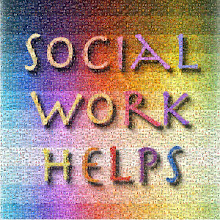 |
| "I still believe, in spite of everything, that people are truly good at heart." -Anne Frank |
I had a client come into my office the other day. An elderly gentleman who reported that that he has been feeling very lost since the death of he wife and constant companion of 64 years. As he described to me the tragic circumstances surrounding his wife’s passing, my heart ached for him. Before I started working in bereavement, I was under the mistaken impression that it is not such a big deal when the elderly die because they are nearing the end anyway and “have lived a good long life” (as the platitudes offered by well-meaning well-wishers often go). Tell that to the person who has spent the last 64 years with someone by his side.
As a young person, it is difficult for me to even comprehend 64 years of my own life, let alone the idea of spending that much time with a loved one. (At this point, my chances of actually being with someone for that long are really pretty slim. Unless I live to be very very old).
Loss is difficult at any age and for any person. Much of what grieving people need is an opportunity to share their story with someone. Too many times, the bereaved person’s circle of support moves on before the bereaved one is ready to. Too many times, the bereaved person feels like he or she needs to put the grief aside and “get on with life.” Our fast-paced American culture expects the healing process to occur in a small window of time (as evidenced by the fact that most companies only offer about 3 days of bereavement leave).
A vast majority of my hours with clients involves listening to their stories and allowing them to express their grief. Because we live in an impatient culture, bereaved people often feel like something is wrong with them because they are spending “too much” time focusing on the death of a loved one.
The simple truth is that this painful focus is actually a sign that something is right with them. The fact that people have not become so jaded and cynical that they still see and feel the pain that comes with losing a loved one is a sign to me of the goodness of human nature. That in a world full of constant news of tragedies, both personal and public, people still find it in their hearts to love someone else so much that a loss impacts them this badly tells me what amazing creatures we human beings are.



 6:05 PM
6:05 PM
 Social Work Helps
Social Work Helps

 Posted in:
Posted in: 











